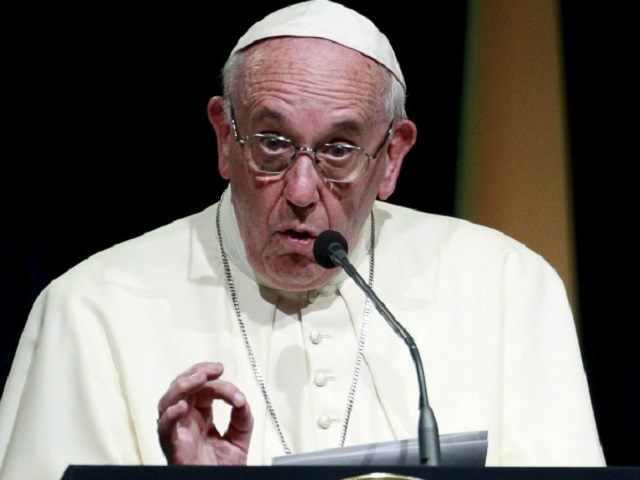In an address before the United Nations Office in Nairobi Thursday, Pope Francis reiterated his environmental message, declaring that it would be “sad, and I dare say even catastrophic,” were particular interests to prevail over the common good at the upcoming climate conference in Paris.
Francis was invited to “plant a tree” in the park of the United Nations center, and used this symbolic gesture as a point of departure for his ecological message.
“Planting a tree is first and foremost an invitation to continue the battle against phenomena like deforestation and desertification,” the Pope said. “It reminds us of the importance of safeguarding and responsibly administering those ‘richly biodiverse lungs of our planet,’ which include, on this continent, ‘the Congo basins,’ a place essential for the entire earth and for the future of humanity.”
Francis encouraged “the commitment of international agencies and civil society organizations” that draw public attention to environmental issues, and even indicated that it was licit for them to employ “legitimate means of pressure” to ensure that “each government carries out its proper and inalienable responsibility to preserve its country’s environment and natural resources, without capitulating to spurious local or international interests.”
The Pope did not speak only of generalities, however, but pointed to specific goals for the upcoming climate conference to be held in Paris several days from now. He said that COP21—the acronym for the meeting—“represents an important stage in the process of developing a new energy system which depends on a minimal use of fossil fuels, aims at energy efficiency and makes use of energy sources with little or no carbon content.”
Francis suggested that the Paris meeting risked being coopted by “particular interests” that could derail the project of decarbonisation. “It would be sad, and I dare say even catastrophic,” he said, “were particular interests to prevail over the common good and lead to manipulating information in order to protect their own plans and projects.”
He also suggested that humanity now faces an ultimatum. We are confronted, he said, “with a choice which cannot be ignored: either to improve or to destroy the environment,” adding that “climate change is a global problem” that represents “one of the principal challenges facing humanity in our day.”
Without using the expression “legally binding,” Francis did articulate his hope that the Paris talks would achieve a “global and transformational agreement” targeting the goals of “lessening the impact of climate change, fighting poverty and ensuring respect for human dignity.”
What is really needed, Francis said, is a change of mentality. In place of a “culture of waste, a throw-away culture,” he said, we must adopt a “culture of care – care for oneself, care for others, care for the environment.”
Francis also repeated claims that ecological questions could be found among the causes of the migrant crisis facing Europe in these days. “There has been a tragic rise in the number of migrants seeking to flee from the growing poverty aggravated by environmental degradation,” he said. “They are not recognized by international conventions as refugees; they bear the loss of the lives they have left behind without enjoying any legal protection whatsoever.”

COMMENTS
Please let us know if you're having issues with commenting.